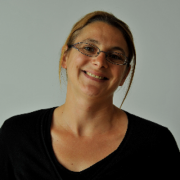Stakeholder interaction platforms: lessons learnt
Responsible Research and Innovation (RRI) stresses that societal engagement is essential for steering research and innovation towards acceptable ends. The idea is that carefully facilitated interactions between societal actors (dialogues or co-production processes for example) can help to better identify and integrate societal perspectives in research and innovation processes. This new way of “doing” science calls for effective stakeholder interaction platforms. Conference sessions on previous years have explored the potential role that science engagement organisations could play here. We are now moving one step further and take stock of all our experiences: what have we learned about the role of science engagement organisations as platforms for stakeholder interaction and dialogue in RRI contexts?
More about this session: After a brief introduction about the speakers' own experiences in the NANO2ALL project, the Sparks project and Cap Science's Pop Science, creative facilitation techniques will be used to bring in the ideas and experiences of the audience. Other explored questions include: To what extend is it possible to institutionalize this new role for informal science organisations? And is this something we actually want?
Facilitator
Associate Professor Science Communication & Public Engagement
Session speakers
Junior Researcher Responsible Research and Innovation
Athena Institute (Vrije Universiteit Amsterdam)
Jantien is a researcher at the VU university and contributed to the creation of stakeholder dialogue formats for science centers in the NANO2ALL project. She worked together closely with six different science centers across Europe, and evaluated their experienced role as platforms for stakeholder interaction. She will shortly share some of her main findings, and will guide an open discussion using creative facilitation techniques.
Deputy Director of the Public Programmes Office, MUSE (Italy)
Patrizia is a scientific communicator at Muse Science Center in Trento, and was part of the team that organized and executed stakeholder dialogues in the context of the Nano2all project. In this session she will share Muse's experiences in functioning as a stakeholder interaction platform.
By June 2018, the Sparks project will have brought together audiences for over 230 interactive activities across 29 European countries. Its goal: telling Europeans that they can get involved in science and that various stakeholders share responsibility for scientific research and innovation through discussions about Responsible Research and Innovation (RRI) in the area of health and medicine. A Sparks project representative will share their experience opening up their science centre or museum to such dialogues and the lessons learned so far.
We, as science centers, have been convinced for too long that reason and facts are self supporting. If science and critical thinking are two foundations of democracy, we have now a new responsibility in the social and media battlefield. In a post fact era, Science and technology are no longer neutral: they are now political issues. Science Pop is a novel cross-party approach developed in Novelle-Aquitane that brings together local authorities, universities, broadband and digital media to initiate new massive push education channels to promote science and democratic engagement. In this session we will share our experiences with stakeholder involvement in the Pop Science programme.





